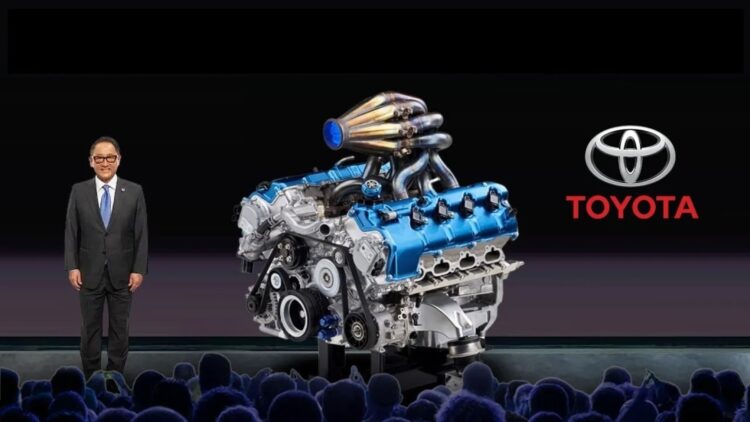©2021 Reporters Post24. All Rights Reserved.
Legendary Japanese carmaker Toyota turned global mobility on its head when it unveiled its hydrogen engine. Even we heralded it as the prototype that was going to change the world (and, in a way, it has). However, it is far from the only alternative to the EVs that dominate the American industry, as Yamaha has shown. Its new engine could be the end of conventional combustion, suddenly decarbonize the roads, and be commercialized on a large scale.
This engine “runs on water”, and it’s not from Toyota: Legendary brand to revolutionize the roads
Currently, Yamaha Motor Corporation has proven to be at the forefront of hydrogen engine technology and has been part of efforts showing how it intends to attain carbon neutrality by enhancing the functionality of internal combustions engines. Policies include the production of fuel cell vehicles and the development and utilization of hydrogen as a fuel, especially in automobiles.
Yamaha’s first attempt at utilizing hydrogen engines can be attributed to its partnership with Toyota Motor Corporation. The aforesaid Japanese manufacturer was entrusted with creating a 100 % hydrogen-fueled, zero-emission 5.0-liter V8 engine. It is the same powerplant as the Lexus RC F luxury sport coupe, with Yamaha exercising an alteration to work with hydrogen fuel.
From a modified prototype, to the first running 100 % on hydrogen
The hydrogen V8 engine boasts several notable features:
- Modified Components: For the purpose of improving the combustion of hydrogen, Yamaha modified the injectors, cylinder heads and intake manifold.
- Power Output: The car has a great engine that can develop up to 450 HP at 6,800 rpm.
- Torque: It delivers optimum torque of 540 Nm at a rate of 3,600 rpm.
- Exhaust Note: While the 8-into-1 exhaust manifold has a completely different sound, it provides a harmonic, high-frequency sound.
Yamaha engineers claim that while developing this hydrogen engine, they have tried to achieve a “friendly feel” where it doesn’t feel mechanical in most of the driving modes and doesn’t feel like it needs electronics to drive it. Specifically, the development team pursued what is known as “Kanno Seino” the Japanese term for a sensual / exhilarating performance.
Yamaha is going beyond cars: More vehicles will be decarbonized using only hydrogen
Leading motorcycle manufacturer Yamaha revealed its brand-new hydrogen electric outboard engine during the Miami International Boat Show in February 2024, which is the world’s first instance of such motorization. It is worth noting that the development of this prototype has brought the company appreciably closer to attaining carbon neutrality in marine utilization.
Moreover, Yamaha Golf-Car Company (YGC) launched the Drive H2, a golf cart version with a hydrogen engine, during the car’s unveiling. Based on the DRIVE2 CONCIERGE4 model, this four-seater golf car features:
- Two 25-liter high pressure hydrogen tanks.
- Based on the above calculation, an estimated driving range should be around 160 km (100 miles).
- It was found that the average time required to refuel is about three minutes.
- There are no emissions at all, but the only output they emit is water vapor into the atmosphere.
- They are less noisy as compared to gasoline-powered engines.
But that’s not all! Yamaha has also presented a hydrogen-powered recreational off-highway vehicle. This concept is equipped with a direct injection of a 100% hydrogen-burning engine, which has no direct CO2 emission, albeit a perfect example of what decarbonization off-road can look like.
When we talk about the new Yamaha hydrogen engine, we are not only talking about a clear alternative to the Toyota engine, which is very similar in performance and operation. We also refer to a clear advance towards the decarbonization of the industry with water-based prototypes that only expel steam, not a single polluting particle. All this, with combustion as the main medium, is something that experts could never have imagined.


